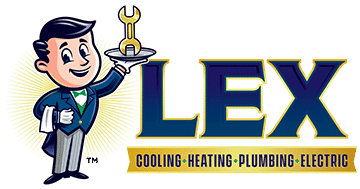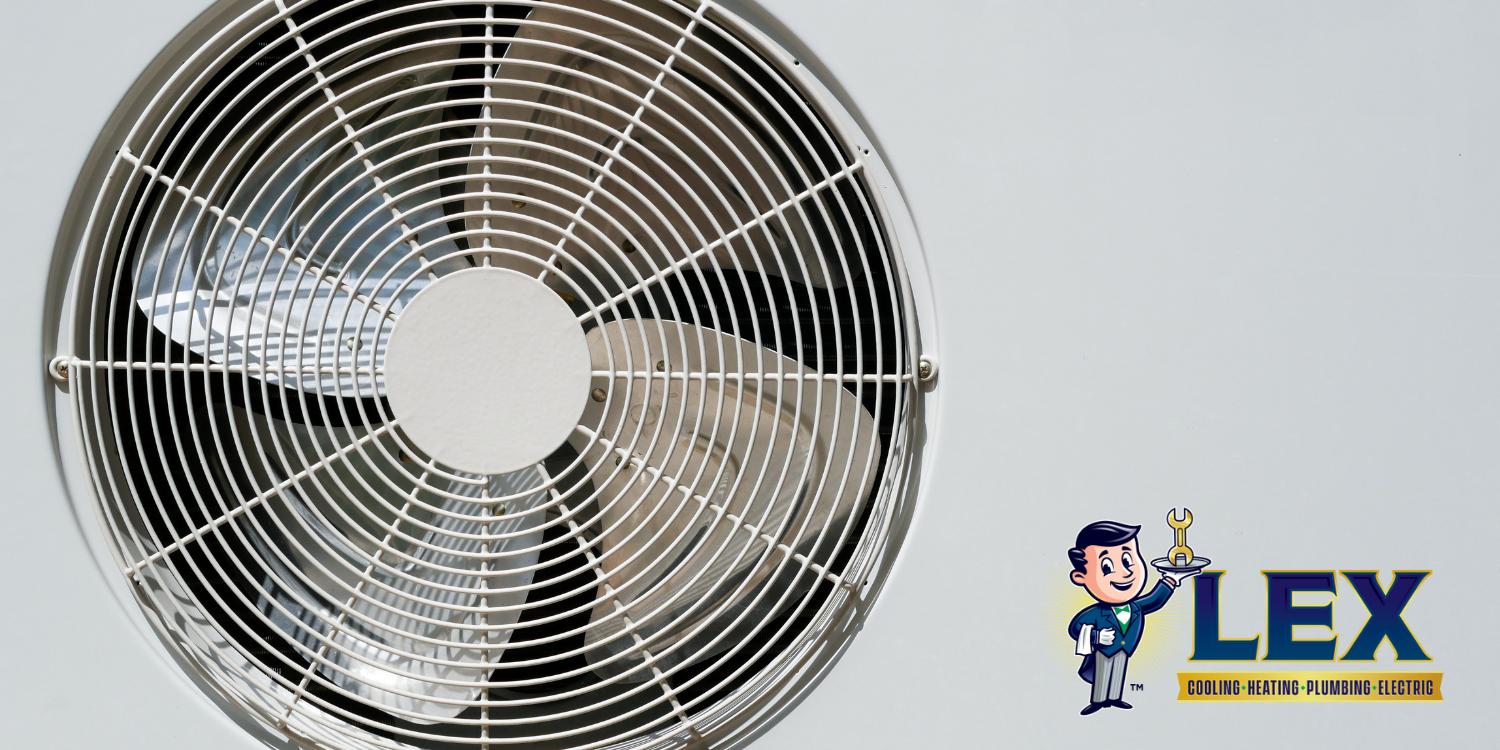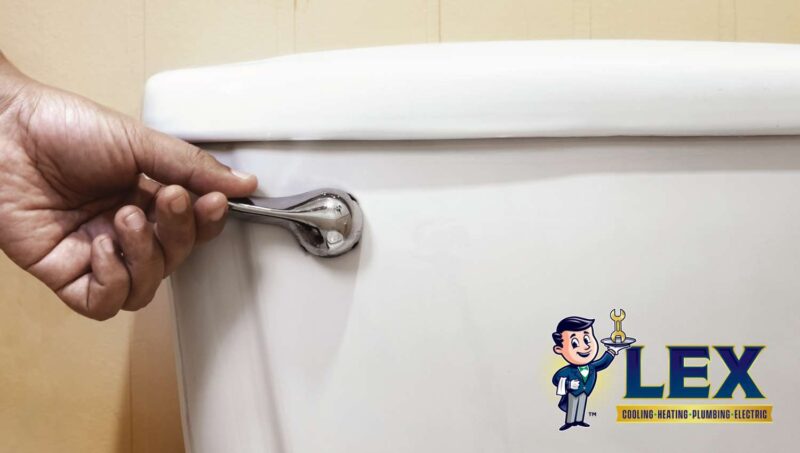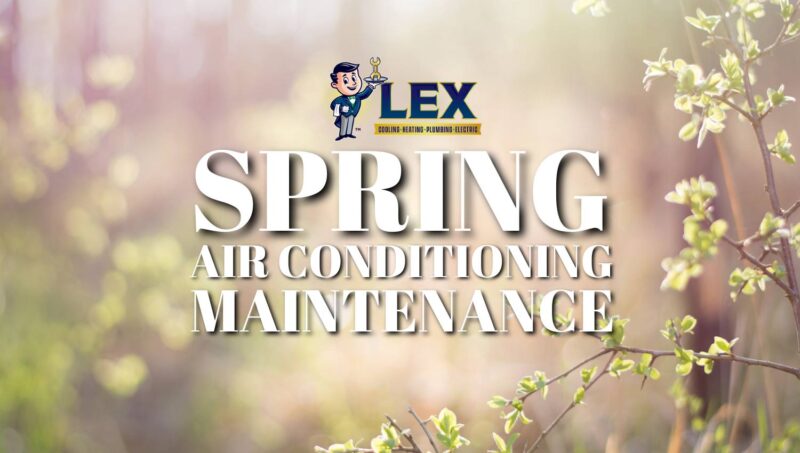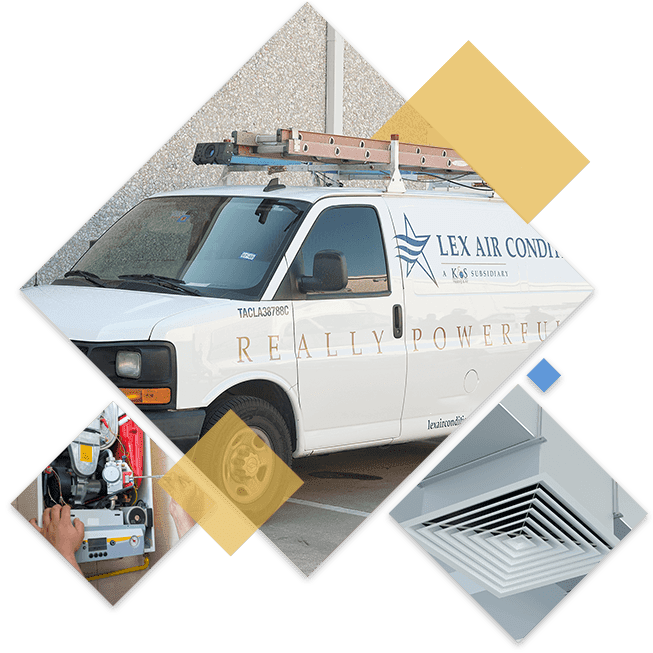A common issue many Carrollton homeowners face with their air conditioners is when the compressor runs but the fan doesn’t. Any problem relating to your air conditioning unit can be cause for concern, especially during the warmer Texas months (which let’s be honest, is pretty much year-round).
At Lex Air Conditioning & Heating, we understand that this minor inconvenience can cause major problems within your home. In this blog, our Carrollton air conditioner pros at Lex explain the importance of the AC unit compressor and the reasons the fan motor may not be running.
When you notice the fan blades aren’t spinning in your outdoor AC unit, it’s important to act quickly. When the outdoor AC fan isn’t running properly, it can cause damage to the rest of the air conditioner unit, causing unnecessary wear and tear. The sooner you address the issue with the fan motor, the sooner your air conditioner can begin working properly again.
If your compressor and fan aren’t working together, call the Carrollton cool air experts from Lex Air at (972) 217-8955 or contact us online to schedule an air conditioning consultation today.
Purpose of Compressor and AC Fan Motor
In your home’s air conditioning system, the compressor unit and AC fan motor are fundamental to its operation and efficiency. The compressor, often referred to as the heart of the air conditioning system, plays a crucial role in the refrigeration cycle. It compresses the refrigerant, enabling it to circulate through the system to absorb and remove heat from the indoor air.
On the other hand, the AC fan motor drives the fan in the outdoor unit, essential for dissipating the absorbed heat from the indoor space to the outside environment. The outside AC fan also helps maintain the pressure and temperature balance necessary for the system’s operation. Together, the AC compressor and outdoor fan motor ensure the seamless transfer of heat, which is key to cooling your space effectively.
If you notice the AC fan is not spinning but don’t hear any sound coming from the compressor, you could have a problem with the compressor contactor. This component of the AC unit controls the electricity to various parts within the unit. Since it involves electricity, it’s advisable to contact an HVAC technician from Lex Air.
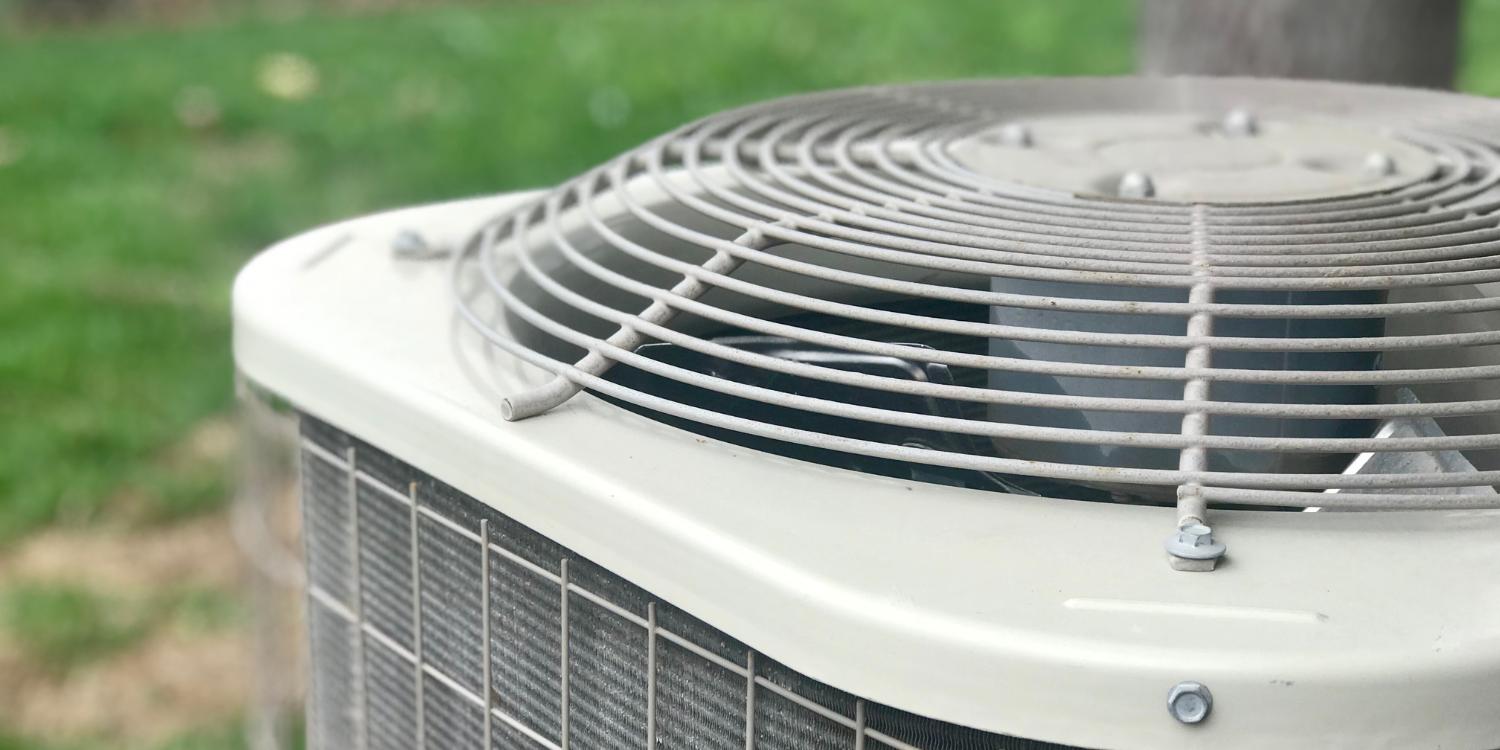
AC Fan Not Spinning? Here’s Why
AC fan motors are an important part of your home’s cooling system. If the fan doesn’t spin, cold air isn’t able to move through your home. When this happens, there can be several reasons that the AC unit fan cannot work properly. In the section below, we’ll explain the most common reasons behind a malfunctioning AC fan.
Common Causes for the Fan Not Working
When understanding why your AC’s fan might not be working, these issues range from electrical problems to mechanical malfunctions. Each problem can halter the fan’s operation and affect the efficiency of your air conditioning system.
Faulty Fan Motor
The fan motor in your air conditioning unit turns the blades to circulate air. But when the fan motor fails, it can no longer rotate the blades properly.
Like other parts within an HVAC unit, fan motors can deteriorate and malfunction. In older AC units, wear and tear is typically behind a malfunctioning motor. Overheating is another reason and is caused by dirt accumulation or poor lubrication, both of which can lead to a bad fan motor.
Electrical Issues
Electrical issues can also cause an AC fan not to work. Problems can range from wiring issues, such as loose connections, frayed wires, or corrosion, to tripped circuit breakers and blown fuses. These electrical faults disrupt the power flow to the motor, preventing it from operating.
In some cases, a power surge might cause the circuit breaker to trip, cutting off power to the air conditioner as a safety measure. Faults within the AC unit’s internal wiring or control board can also obstruct electrical signals, affecting the fan’s operation.
If you suspect electrical problems are causing your AC unit fan not to spin, it’s recommended that you contact an experienced HVAC technician. The Carrollton air conditioner technicians at Lex Air have the skills, experience, and tools to safely and effectively diagnose and fix electrical problems with your HVAC system. This specialized knowledge ensures your safety but also prevents future issues and potential damage.
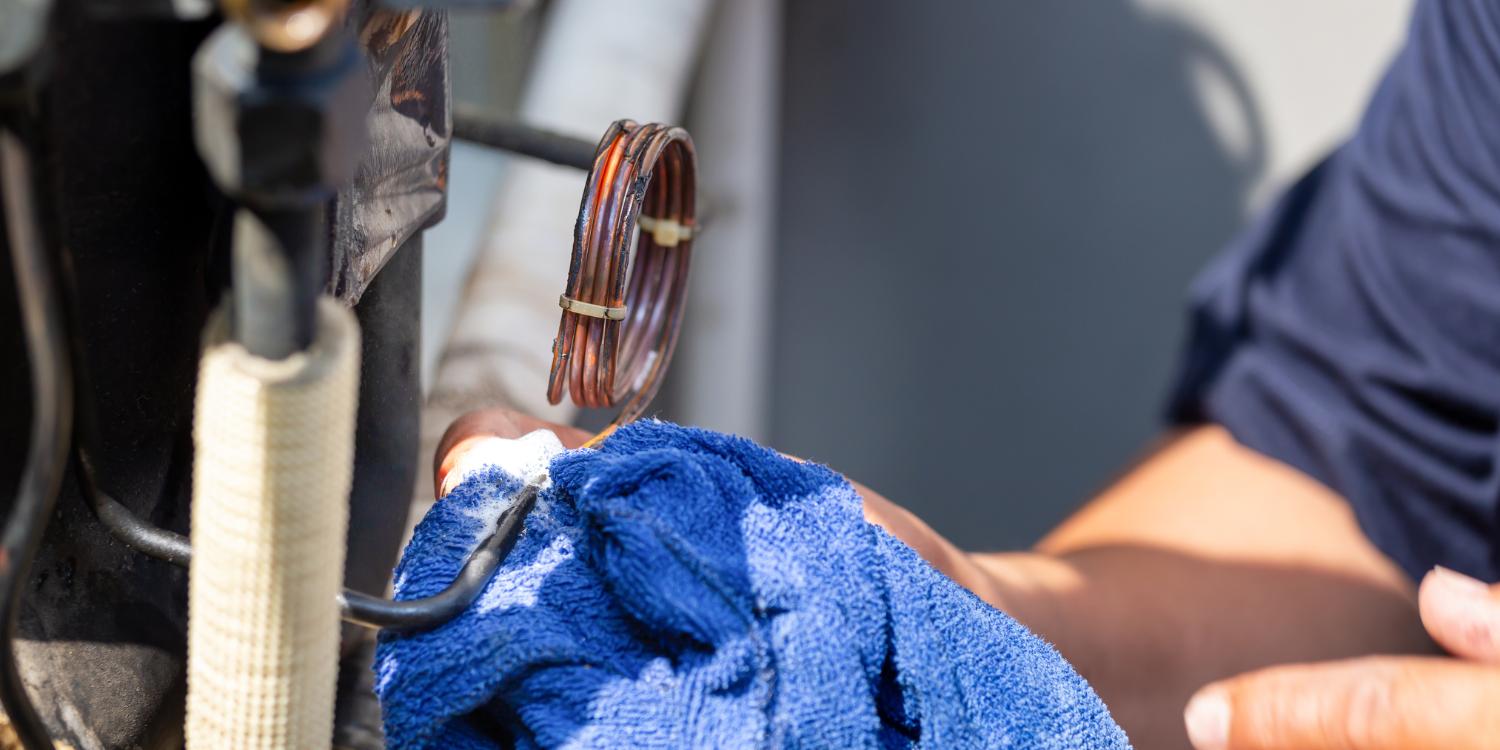
Capacitor Problems
The capacitor acts like a battery, providing the initial surge of energy needed to start the fan motor and helping to keep it running. Over time, capacitors can wear out or fail due to electrical surges or general decline, leading to insufficient power supplied to the motor. This results in the fan struggling to start or not starting at all. A faulty capacitor often exhibits signs like a humming noise from the fan motor or a fan that turns off shortly after starting.
Thermostat Malfunctions
Thermostat issues can also affect your air conditioning system, including the operation of the AC fan. The thermostat is the control center, dictating when and how the AC system operates.
If the thermostat malfunctions, it may fail to send the correct information to the AC unit to start the cooling process or to activate the fan. Common issues with thermostats include miscalibration, where the temperature readings are inaccurate, wiring problems that affect signal transmission, or complete failure of the thermostat’s electronic components. These issues can result in the AC fan not turning on, irregular cooling, or the AC system running continuously.
Overheating and Safety Switches
Overheating and safety switches are vital components in an air conditioning system that protect the system from damage and prevent potential hazards. When the system’s components, including the fan motor, become too hot due to dirty coils, refrigerant issues, or blocked airflow, safety switches are designed to activate as a safety measure. These switches can shut down the fan or the entire AC system to prevent further overheating and potential damage.
While these safety mechanisms are essential, constant overheating issues indicate underlying problems that require professional attention. Ignoring overheating can lead to frequent system shutdowns and increased wear and tear on components.
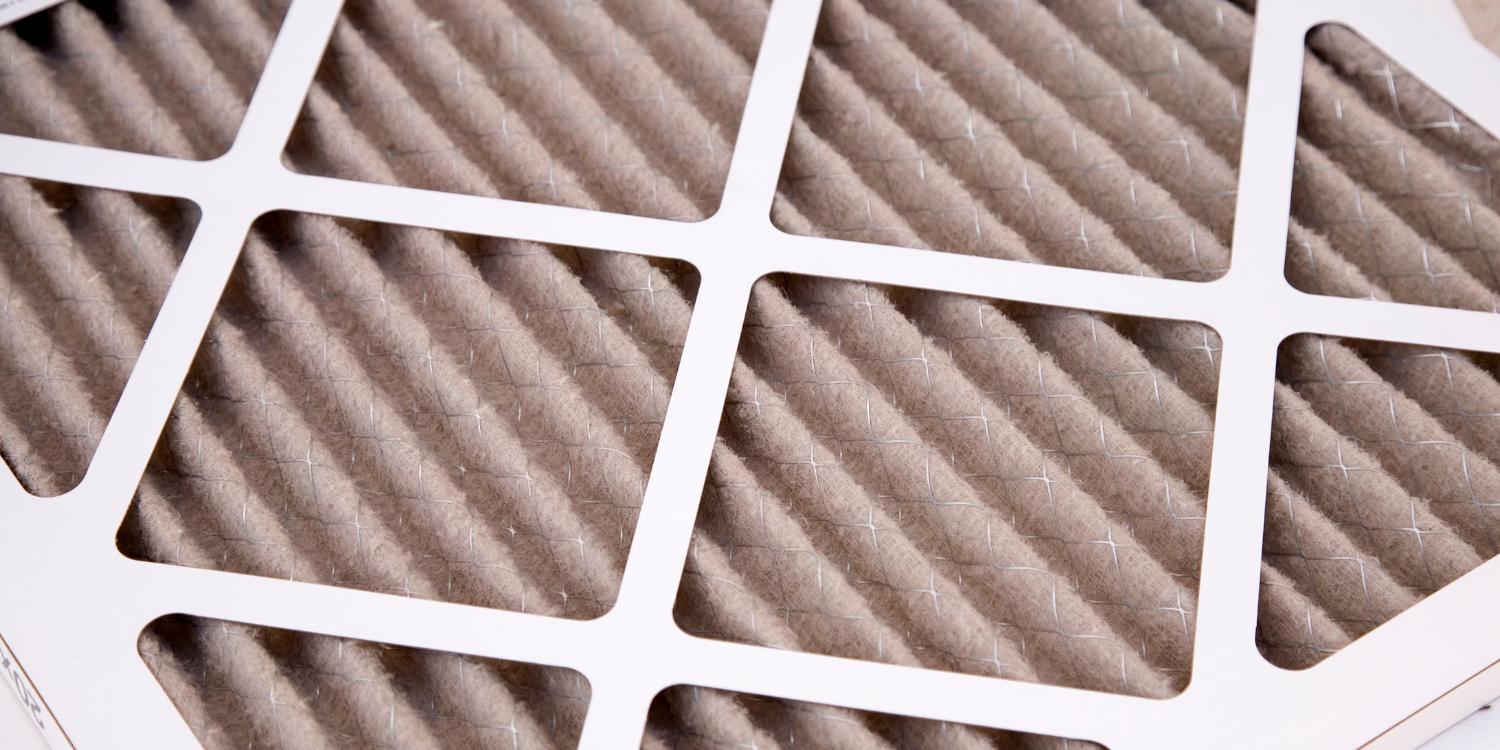
Troubleshooting Steps
When dealing with a stationary AC unit fan, Carrollton homeowners can start with basic troubleshooting steps to safely get the fan spinning again.
- Check the air filter: AC fan issues can often result from a dirty air filter. Locate the air filter behind the front panel or in a slot near the top or bottom of the unit. If it appears dirty, replace the clogged air filter with a new one that matches the specifications of your AC unit.
- Inspect the fan axle: The axle should be checked for wear, misalignment, or damage. With the power off, access the fan compartment and gently rotate the fan using a wooden spoon or other wooden object. It should spin freely without wobbling or making unusual noises. Any resistance or irregular movement might indicate an issue with the axle or the bearings. Also, check for any sticks or debris that might block the fan axle.
- Assess the fan belt: A broken fan belt will prevent the fan from turning. If your unit has a fan belt, inspect it for any cracks, fraying, or signs of wear. If the belt appears damaged or slack, it will need replacement.
Homeowners must understand the limits of DIY troubleshooting. If the issue involves electrical components, refrigerant, or anything beyond basic external checks, it’s time to call a professional from Lex Air. AC systems can be dangerous without the right tools and expertise. Plus, attempting repairs without proper knowledge can void warranties or lead to more significant damage.
Risks of Ignoring the Problem
Ignoring problems with an AC fan can lead to several consequences. A compromised fan forces the AC system to work harder to provide cold air for your home, significantly increasing energy consumption and utility costs. This inefficiency strains your wallet and puts extra stress on other
components of the air conditioner, which can lead to expensive HVAC repairs in the future.
Another issue that can result from ignoring a malfunctioning fan is overall HVAC system damage. For example, an overworked compressor struggling to compensate for a faulty fan can fail prematurely, requiring an expensive replacement.
Electrical issues should be handled carefully as they can often be a safety hazard. Ignoring an electrical problem can put the homeowner at risk of an electrical fire and other dangers.
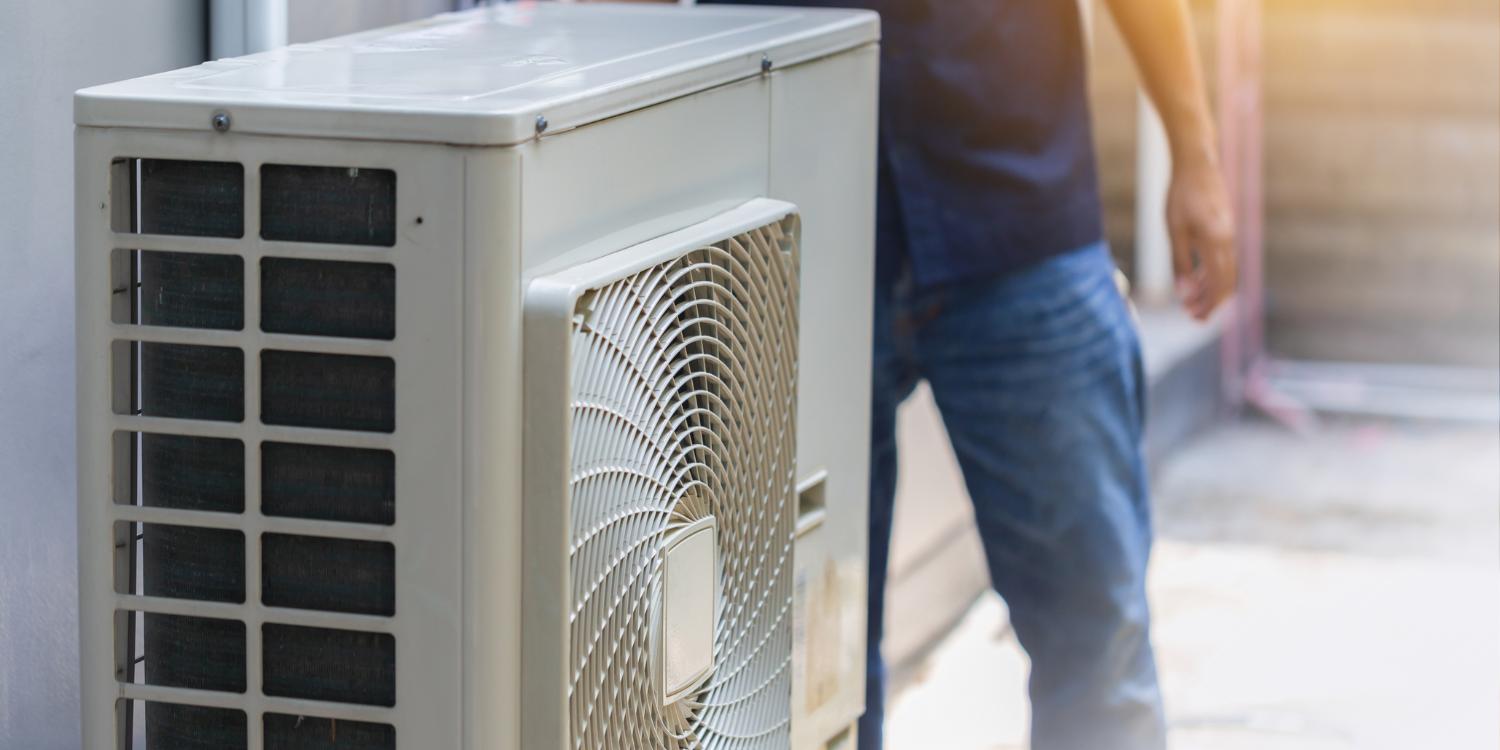
When to Call a Carrollton HVAC Professional From Lex Air
When facing challenging HVAC problems, like a faulty AC fan that can’t be fixed with DIY intervention, it’s time to call a Carrollton HVAC pro from Lex Air. With their expertise in HVAC systems, our trained technicians can accurately diagnose and effectively repair the issues causing your AC fan not to work.
Choosing Lex Air not only gives homeowners the confidence the issues have been solved but also the peace of mind of knowing the job is done safely and to the highest standard. Our HVAC technicians are equipped to handle various AC problems, like a broken compressor contactor, faulty motor, or poor wiring. No matter what is to blame for your AC fan malfunctions, we can fix the problem and get your system working efficiently again.
For an AC Unit Inspection in the Carrollton Area, Call Lex Air Conditioning and Heating Today
Addressing the issue of a non-working AC fan is crucial for maintaining the efficiency of your cooling system. At Lex Air Conditioning and Heating, our team of experienced technicians is ready to inspect, diagnose, and resolve any issues with precision and professionalism.
Don’t let a malfunctioning fan compromise the comfort of your home or lead to more significant problems down the line. Contact Lex Air at (972) 217-8955 to schedule a comprehensive HVAC system inspection today.
